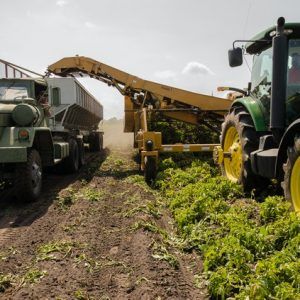By Grace Nyambura
If I were chosen to lead Kenya today, I would ensure that everybody capable of contributing to the active economy has the opportunity, capability, and motivation necessary.
Current and future problem
Forty-three percent of our population is aged fifteen years and below. Meaning, fifteen years from now, this group will be in the active economy. Mark you, this group is close to half of the population. Therefore, we need to double the opportunities that this age group will exploit.
We need to engage economic strategies that will avail opportunities for the future generation while servicing the current population.
Foundations of the solution
To start with, sixty-nine percent of our population lives in rural areas. In rural areas, agriculture is the primary economic activity. Rejuvenating the agricultural sector, therefore, seems intuitive.
Counter-intuitively, the form of agriculture to practice will be more focused on international markets rather than subsistent farming. This is because, at this point economically, we are unable to spend domestically in a way that will drive us out of our predicament.
For instance, if you look at our supermarket alleys, we have numerous maize flour brands. All they compete on is price. Every new entrant into the market comes with a lower price. In the end, it is the farmer who bears the weight. His/her product is bought at a near throwaway price.
Consequently, farmers are unable to produce. To cover for the deficit, we turn to imports. Importing is spending money outside rather than within. This weakens our economy and creates a self-perpetuating pathway to poverty. To counter this, I would support farmers to produce for international markets, which will increase the dollar flow inwards.
Here are the steps I would follow:
Step 1
Educate farmers to produce products that meet international standards, ensuring that quality is met for the international market and local consumers. With higher quality agricultural products, we shall have a chance to compete globally.
Step 2
Subsidize farm input prices. Subsidizing these inputs allows the farmer to undertake large-scale farming, farm according to provided standards, and earn a profit after harvest. As a result, more people will be motivated to go back to agriculture, thus increasing our productivity which increases our export. Increasing the foreign dollar will steer us towards economic success.
Step 3
Subsidize locally produced food products. Subsidizing locally produced food products will increase the uptake of locally produced products. It will also ensure that the profits made through farming will not be spent on food. Instead, they will be spent on education, health care, personal development, vacations, and similar ventures.
Step 4
Streamline bodies that govern agriculture. Ensure that they are functional and they have the farmer’s best interest in mind. Furthermore, creating and implementing laws that support the agricultural framework.
Increasing the foreign dollar is of utmost importance for an economy to wriggle its way out of struggle. Our strong point is agriculture. Hence we must use this strength to bring in the bloodline of capital that we so badly need.
Other industries’ input
Now that our agricultural framework is streamlined, other relevant support industries need to come in handy.
Technology
Technology is vital for the success of the agricultural industry. It will enable us to produce high-quality goods, cheaper and faster. Technology will also be very vital in the value addition process of our farm produce. That notwithstanding, it will also be crucial to have good technology in running the logistics of the whole agricultural process.
Partnerships
For such, I shall forge strategic partnerships with already established providers of the relevant technologies valuable to us. I will ensure to negotiate favourably so as not to hurt our agricultural framework objectives.
For instance, any form of machinery imported is taxed approximately seventy percent of the machine's price. This is expensive. Hence, farmers prefer other cheaper, substandard machines or do away with machines completely. Instead, what I will do is, for instance, allow the manufacturing company to set up in Kenya, manufacture within, and sell locally exclusively. This will bring the cost of machinery down by 70 percent. Bringing their manufacturing here will also create more job opportunities.
Entrepreneurial environment
I shall also create an excellent entrepreneurial environment, mainly geared towards bettering our agricultural sector. To address our local agricultural needs, we shall need our problems addressed locally. Entrepreneurs will bring solutions to the market. Furthermore, they will increase job opportunities. Lastly, exporting their solutions will create more foreign money inflow.
Industrial growth will be inevitable in perpetuity as many support industries will be born to take care of value addition, logistics, and technology.
Bringing it full circle
Working on this one area of our economy, I will drastically improve our economic standing. Opportunities will be plenty, and capital will be sufficient. This will serve both our current and future populations.
A better agricultural sector will address the lack of opportunity, capability, and motivation problem for sixty-nine percent of our population.
The ripple effect of bringing everyone on board will be a better education system, a better, healthier nation, a better financial standing, more employment opportunities improved living standards, and peace of mind.
In conclusion
In summary, Kenya has the tools necessary to build its economy. It just has to go back to the basics:
1. Use what we have (our strength), arable land, and a vast labour force to create a product that the world needs.
2. Bring in foreign money and use it to spur and finance economic growth.
***
21 year old Grace Nyambura is currently a student at Kabarak University pursuing a bachelors in procurement and logistics. She loves reading, doing research, travelling, and exploring different kinds of food. Grace believes it is through sober leadership that societies get to thrive, but only if the correct methodologies and procedures are applied.





